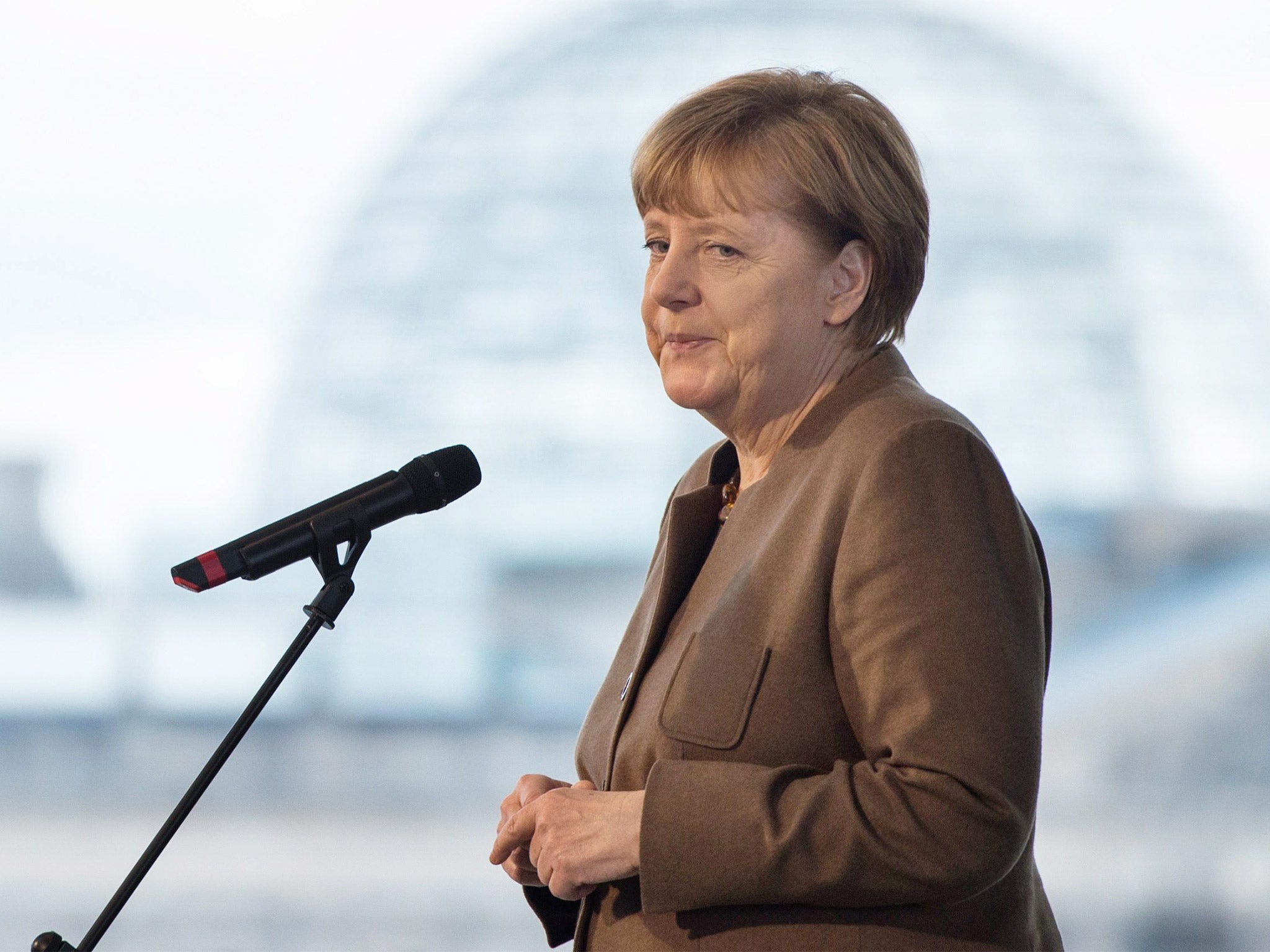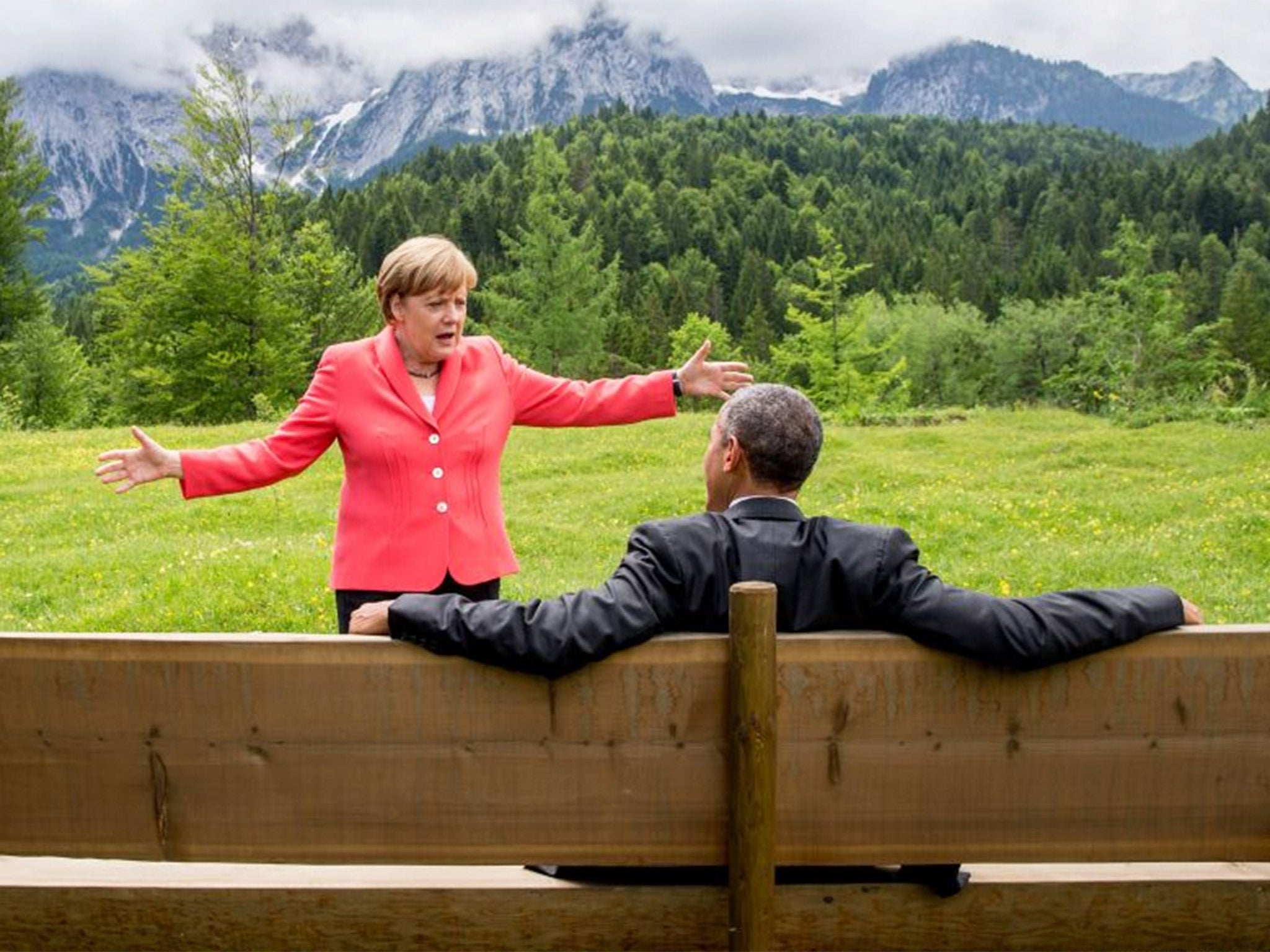Angela Merkel, a decade in power: The girl who grew up to be a leader on the world stage
In part two of our series on the German Chancellor, Tony Paterson charts the journey from Ms Average to Iron Lady

Your support helps us to tell the story
From reproductive rights to climate change to Big Tech, The Independent is on the ground when the story is developing. Whether it's investigating the financials of Elon Musk's pro-Trump PAC or producing our latest documentary, 'The A Word', which shines a light on the American women fighting for reproductive rights, we know how important it is to parse out the facts from the messaging.
At such a critical moment in US history, we need reporters on the ground. Your donation allows us to keep sending journalists to speak to both sides of the story.
The Independent is trusted by Americans across the entire political spectrum. And unlike many other quality news outlets, we choose not to lock Americans out of our reporting and analysis with paywalls. We believe quality journalism should be available to everyone, paid for by those who can afford it.
Your support makes all the difference.With a reputation as the world’s most powerful woman, and after 10 years as her nation’s first female leader, it seems almost incredible that anyone could ever have had the audacity to dismiss Angela Merkel as “the girl”.
But Helmut Kohl, Germany’s legendary “unification Chancellor”, relished calling his protégée “das Mädchen” – until “the girl” had the last laugh, by first ousting and then replacing her mighty mentor.
With hindsight, Kohl could almost be forgiven for calling her that. Photographs of Merkel when she joined Kohl’s conservative Christian Democrats after German unification in 1990 depict a slightly awkward-looking, chubby young woman who seems to have none of the sophistication of a West German female politician of similar age.
But that was, and to a certain extent still is, Merkel’s appeal. She looks and acts like an unpretentious Ms Average. Kohl exploited her to the full during her early political career. She was taken aboard by his party only weeks before Germany’s first post-unification general election, in the winter of 1990. Kohl won that contest with his promise that East Germany would soon be a “blossoming landscape”.
Merkel, his East German protégée who was living proof of his commitment to that cause, was soon made minister for youth and women, then environment minister before becoming her party’s general secretary in 1998. Always ambitious, Merkel had worked her way up the party’s ranks. But in 1999 came an opportunity which she turned into a pivotal moment in her career: Germany was shocked by revelations that Kohl had for decades been at the centre of a party slush-fund scandal. Worse was the fact that he refused to name the donors to the illegal fund.
Merkel seized the opportunity and published a regicidal letter in the respected Frankfurter Allgemeine newspaper in which she argued that Germany’s conservatives must “learn to walk” without the “war horse” Kohl. The letter proved to be a masterful coup of Machiavellian proportions. Merkel became the new broom who swept away the old guard. The party was ready to follow her. In April 2000, Kohl was in disgrace and she was elected as the first female Christian Democrat leader in the party’s history. It was only a matter of time before she would run for the post of Chancellor.
Germany’s 2005 general election saw her gain power with only a wafer-thin majority. The Christian Democrats’ media experts worked hard at trying to improve her dowdy appearance. Election placards depicted a revamped – and surprisingly youthful-looking – Merkel alongside the slogan, “A new beginning”. But her first government was hardly a break with the past. Her narrow election win forced her to form a grand coalition with the opposition Social Democrats – the same political alliance that she now leads again, two general election victories later.
In Germany, Merkel’s government was able to reap the benefits of wide-ranging yet unpopular economic reforms that were forced through by her Social Democrat predecessor, Gerhard Schröder.
The changes Merkel has wrought in Germany during the past decade can be counted on one hand: she has ended military conscription, and as a reaction to the Fukushima crisis, she has pledged to end the use of nuclear power. In political terms, she has shifted her Christian Democrats – a party once rooted in staunch Catholic conservatism – a long way towards a liberal-conservative centre.
No one should underestimate Merkel’s commitment to staying in power
The German philosopher Peter Sloterdijk says Merkel “has synchronised herself with the Germans’ deep desire for normality – which is something that they have only seldom experienced during the last century.”
But it has been Merkel’s successes on the international stage that have endeared her to the electorate. She repaired an American-German relationship which had been shattered by Schröder’s outright opposition to the US invasion of Iraq. Merkel also ended the cosy relationship Schröder had enjoyed with President Vladimir Putin by daring to criticise human rights abuses in Russia. She was among the first to criticise Russia’s invasion of Crimea and she is seen as having led international attempts to find a solution to the Ukraine crisis.
She may have got rid of her mentor, but on Europe she has remained one of Kohl’s most dedicated disciples. She has stuck faithfully to the terms of Europe’s so-called motor, the Franco-German alliance. Kohl’s maxim was always: “German unity and European unity are two sides of the same coin.” Merkel has taken these words to heart. In Europe few would dispute that she has proved herself an adept negotiator and power-broker capable of resolving seemingly intractable conflicts at the last minute.
If anything, the Greek debt crisis has been a classic example of Merkel shaping events, ultimately to suit her own political ends. As the problem intensified, Merkel became acutely aware that German voters were not willing to make further sacrifices for the sake of Europe, especially if that meant a German bailout for Greece. “Never again shall we be Europe’s paymasters!” demanded Germany’s Bild newspaper. So, in order to safeguard her own position, Merkel opted to risk being called a “Teutonic Thatcher” and play hard ball in Europe.
It meant being depicted as a latter-day Adolf Hitler on the streets of Athens. “If the eurozone fails then so will Europe,” she warned. Her critics argue that in order to placate German voters she imposed a cruel austerity regime on Greece. Her supporters say she saved Europe by keeping Greece in the eurozone.
Despite being Chancellor for a decade, Merkel remains shielded from the public. She and Joachim Sauer, her reclusive physics professor husband, have an upstairs flat overlooking Berlin’s Pergamon Museum. At weekends they disappear to their country cottage in rural Brandenburg. We know that Merkel occasionally bakes cakes and that she uses energy-saving light bulbs. She has become famous for adopting a sort of female “Chancellor uniform” – trousers and a series of coloured jackets, bought at Germany’s Karstadt chain store. She is reputed to be terrific at mimicking other politicians but she never shows off this ability in public.
Her political speeches are uninspired – some would say crushingly boring. They are usually delivered with a deadpan expression in a near monotone. The content is more akin to a university lecture than a message designed to kindle the enthusiasm of the average man on the street. At her rallies many of the supporters are women, most of whom say they admire her.

Her inscrutability is fostered by the way in which she governs. She inhabits a large office on the seventh floor of the futuristic white concrete-and-glass box that is the Berlin Chancellor’s office where she sits under a portrait of Konrad Adenauer. She started her Chancellorship assisted by a team of women advisers referred to as the “Girls’ Camp”. But now only one camp member remains. Beate Baumann, a dour 52-year-old party academic whom Merkel met in hospital when she broke her leg in 1992, is the eminence grise of the Chancellery. She is there to ward off threats and acts as Merkel’s early warning system.
Merkel owes much of her staying power to the fact that in her 10 years as Chancellor she has ruthlessly dispatched rivals and opponents who have posed a potential threat.
Many would argue that she now rules without opposition. As her late biographer Gerd Langguth remarked: “No one should underestimate Merkel’s commitment to staying in power.”
Yet as the anniversary of her unbroken decade in office approaches this weekend, she is probably closer to losing power than ever before.
Tomorrow: In the final part of our series we look at the current refugee crisis and what it means for Angela Merkel’s leadership
Subscribe to Independent Premium to bookmark this article
Want to bookmark your favourite articles and stories to read or reference later? Start your Independent Premium subscription today.
Join our commenting forum
Join thought-provoking conversations, follow other Independent readers and see their replies
Comments